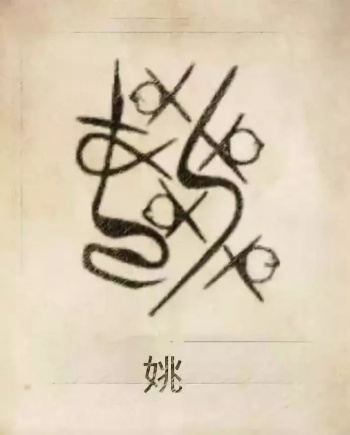The Yao(yáo) surname, one of China’s oldest family names, carries a profound cultural heritage spanning over 4,000 years. From Emperor Shun, a legendary sage-king of antiquity, to modern-day Yao descendants worldwide, this surname reflects the resilience, diversity, and enduring values of Chinese civilization. Let’s explore its origins, historical luminaries, cultural significance, and global impact.

I. Origins of the Yao surname :
1. Emperor Shun’s Legacy
The primary origin traces to Emperor Shun (Yao Chonghua), a revered ruler of the “Five Emperors” era. Born in Yao Xu (modern Puyang, Henan), his descendants adopted “Yao” as their surname to honor their ancestral land. Shun’s emphasis on filial piety and benevolent governance laid the ethical foundation for Yao clans.
2. Ethnic Integration
During the Jin Dynasty (266–420 CE), Qiang ethnic leader Yao Yizhong claimed descent from Shun, adopting the Yao surname and establishing the Later Qin state. This integration enriched the surname with nomadic cultural influences.
3. Multicultural Adaptations
Through China’s Ming-Qing dynasties, Mongol, Manchu, and Miao communities adopted the Yao surname during government-led assimilation campaigns.
II. Historical Figures:
1. Statesmen and Leaders
Yao Chong – Tang Dynasty chancellor whose “Ten Policies” reforms fueled the “Kaiyuan Golden Age.”
Yao Yizhong – Founder of the Later Qin state, blending Han and Qiang governance.
2. Cultural Icons
Yao Nai – Qing Dynasty scholar who pioneered the “Tongcheng School” of prose, epitomized by Notes on a Journey to Mount Tai.
Yao He – Tang poet renowned for his pastoral “Wugong Style” poetry.
3. Innovators and Heroes
Yao Guangxiao – Ming Dynasty strategist who orchestrated the compilation of the Yongle Encyclopedia.
Yao Changzi – Ming anti-piracy hero celebrated for sacrificing his life to protect his community.
III. Cultural Significance:
1. Family Virtues
Yao clans emphasize “loyalty, filial piety, and scholarly pursuit.” Ancestral halls like the Three Reverences Hall (Sanwei Tang) institutionalize Shun’s teachings in daily life.
2. Migration and Identity
Genealogical records, such as the Yiyang Yao family’s generational poem (“Guard virtue like treasure, cultivate oneself with reverence”), reveal a commitment to moral unity. Migration waves—from the Wei-Jin era southward to Ming-Qing overseas diasporas—showcase cultural adaptability.
3. Martial Arts Legacy
The Yao Family Wing Chun (Foshan school), developed by Yao Cai and Yao Qi, blends serpentine techniques with philosophical depth, symbolizing the fusion of tradition and innovation.
IV. Social Impact:
1. With over 4.1 million bearers, Yao ranks 62nd among Chinese surnames. Major clusters in Anhui, Zhejiang, and Guangdong provinces highlight regional cultural hubs.
2. Global Networks
Overseas Yao communities maintain cultural ties through organizations like Malaysia’s Jiangxia Hall, hosting annual gatherings attended by thousands.
3. Modern Contributions
From submarine engineers to NBA legend Yao Ming—whose wine brand “Yao Ming” bridges East-West tastes—Yao descendants continue to innovate while honoring their heritage.
Conclusion:
The Yao surname is more than a genealogical record; it mirrors China’s multicultural ethos. From Emperor Shun’s moral philosophy to the global Yao diaspora’s adaptability, this surname exemplifies how tradition and progress coexist. For historians and cultural enthusiasts alike, exploring the Yao legacy offers a window into the ethical and cultural bedrock of Chinese civilization.